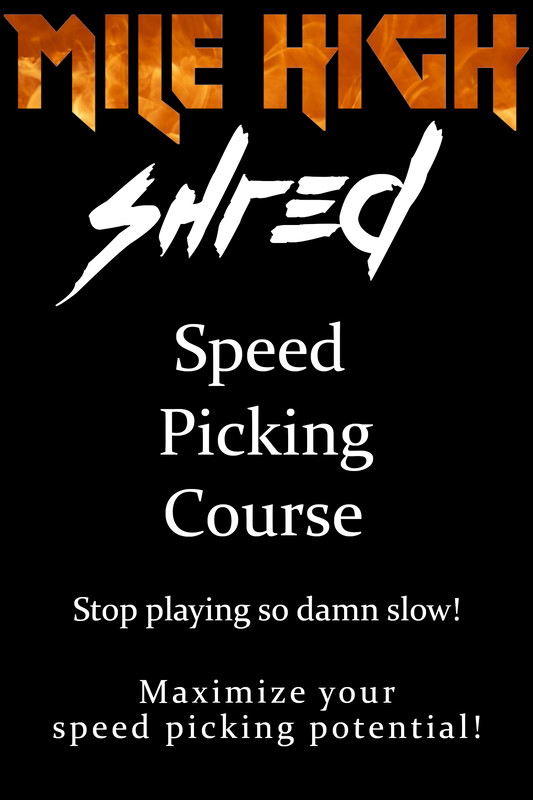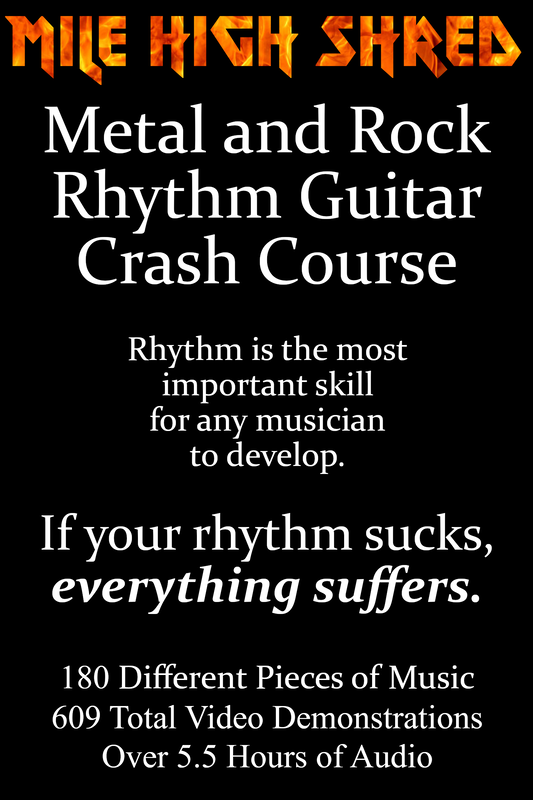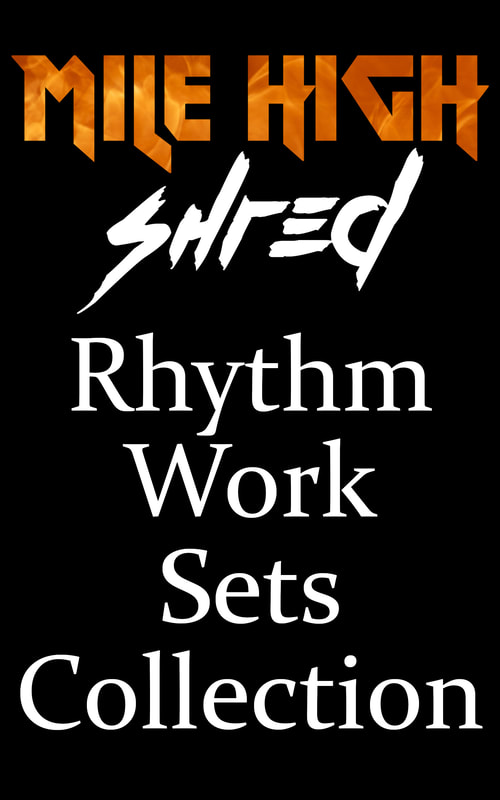|
A discussion I had with a student recently led me to think about certain aspects that go into becoming a proficient guitar player. So, just what is a realistic time frame for a guitarist to become really good on their instrument, or can you even give a time frame?
I've touched on this before, and mentioned how it comes down to how much time you put in. How you practice also makes a big difference. However, I'd like to mention some other things this time, and give some numbers so you can get a perspective of how many years it may take you to reach your goals, whatever those goals may be. For those of you who don't know, I'm very much into weight training, health and fitness. One goal I had when I got into lifting was to get as big as Arnold. I have recently learned about putting my goals into a more realistic perspective. Without taking performance enhancing drugs, I'll never be as big as Arnold, and I'm fine with that. Also, there's a really good chance Arnold, just like so many top level athletes, has fantastic genetics that allowed him to do what he did. Does that mean genetics can play a role in how well you can play and learn an instrument? Unfortunately, yes. Does that also mean you need to take steroids in order to play extremely well? Thankfully, no! So, when you begin comparing yourself to guitarists like Paul Gilbert and Steve Vai, you're basically comparing yourself to top level athletes. You're being unfair to yourself when you do this. We can't all have fingers that are 2 feet long! The only person you need to compare yourself to is yourself. Celebrate every small victory you make. If speed is your goal, and you can play 1 BPM faster in a day, or a week, that's still an accomplishment. I'm a big believer that as long as you practice correctly and put in enough time, you can basically do anything you want on your instrument. However, after teaching for several years now, a somewhat humbling conclusion has been made: Some people just "get it." Some people just seem born to play, and they learn very quickly. Some people have a very difficult time learning how to play, and even if they put in the right amount of effort and correct practice, they still won't be able to learn as fast as someone seemingly born to play. Have you seen any of these child prodigies on YouTube? You may have seen someone around 10 years old playing extremely difficult and technical songs like they've been playing for decades. These kids seem to have some kind of genetic advantage over the majority of players. Now, that doesn't mean they haven't practiced their butts off to get to where they are. You still need to practice, and put forth effort. In fact, maybe these kids just put in way more hours than we realize. That is something I believe is often overlooked. Just because someone has only been playing a few years doesn't mean that someone who's play for 20 years has spent more time with the instrument. I've had some people tell me I'm gifted at playing the guitar, and even the bass. Now, I don't know if this is true. I put in tons of work, especially in my first few years of playing. Now, my dad is a guitar player, and his dad a guitar player. Does that help me out in some way? Possibly. I really don't know. I would say there is a good chance though. Regardless, I still put in a lot of work, just like any of the guitar greats. (No, I'm not calling myself a guitar great.) 10,000 hours of practice is what it takes to become an expert at something. Well, at least that's what I've been told. I've also read that this idea has been debunked. But, let's just say it's true for the sake of making an example. If you're only practicing for 30 minutes a day, everyday for a year, that gives you about 182 hours of practice each year. It will take you 55 years to reach the mark of 10,000 hours. That's a pretty long time. If you're only putting that much practice time into your playing, than you can expect to be at it for a very long time before you become a proficient player. What about 60 minutes a day? That will give you about 365 hours for the year. You'll still have about 27.5 years to be super good. If you put in 2 hours of practice a day, you'll have put in about 730 hours for the year. Now you'll only have 14 years of practice and playing until you've hit that 10,000 hour mark. So, hopefully you see that the more practice you put in, the closer you get to becoming an expert, professional, etc. It's not about how many years you've been playing, but about how many hours you've actually put into learning your instrument. Genetic capability aside, nothing trumps hard work and dedication. Someone putting in the right kind of practice for the right period of time will always be better than the gifted musician who never practices and is lazy with their instrument. I completely understand how difficult it can be to get in a lot of practice time once you've hit good ol' adulthood. Working a full time job can be draining, and eat away at your energy to practice. Throw in having a family, and the job gets even harder. But, no excuse in the world is suddenly going to make you a better player. So save the excuses, and just accept the fact that you may have to take a lot longer at reaching your goals due to your life schedule. If you stay persistent you will get better. Make sure you are practicing properly and the correct material too. Practicing the wrong thing for 10,000 hours won't do anyone any good. If you can, get an instructor. It's what I did, and I'm truly grateful for it. Check out this video for more advice on this subject:
2 Comments
Dave B
9/23/2017 05:41:47 pm
very wise words of advice.
Reply
John Taylor
9/24/2017 11:50:33 am
Thank you, Dave!
Reply
Leave a Reply. |
Available Instruction Courses
|
- Metal and Rock Guitar Lessons
- Reach Your Fastest Speeds
-
Menu
- Skype Lessons
- Sign Up for Skype Guitar Lessons
- Video Correspondence Lessons
- Sign Up for Video Correspondence Lessons
- FREE Lessons for a WEEK >
- Free Tabs
- Get TWO FREE eBooks
- Rates
- Instruction Courses >
- Video Feedback Lessons
- Contact
- Blog (LOTS of Free Lessons)
- Student Testimonies
- Backing Tracks
- Store
IN DEPTH
|
|





 RSS Feed
RSS Feed